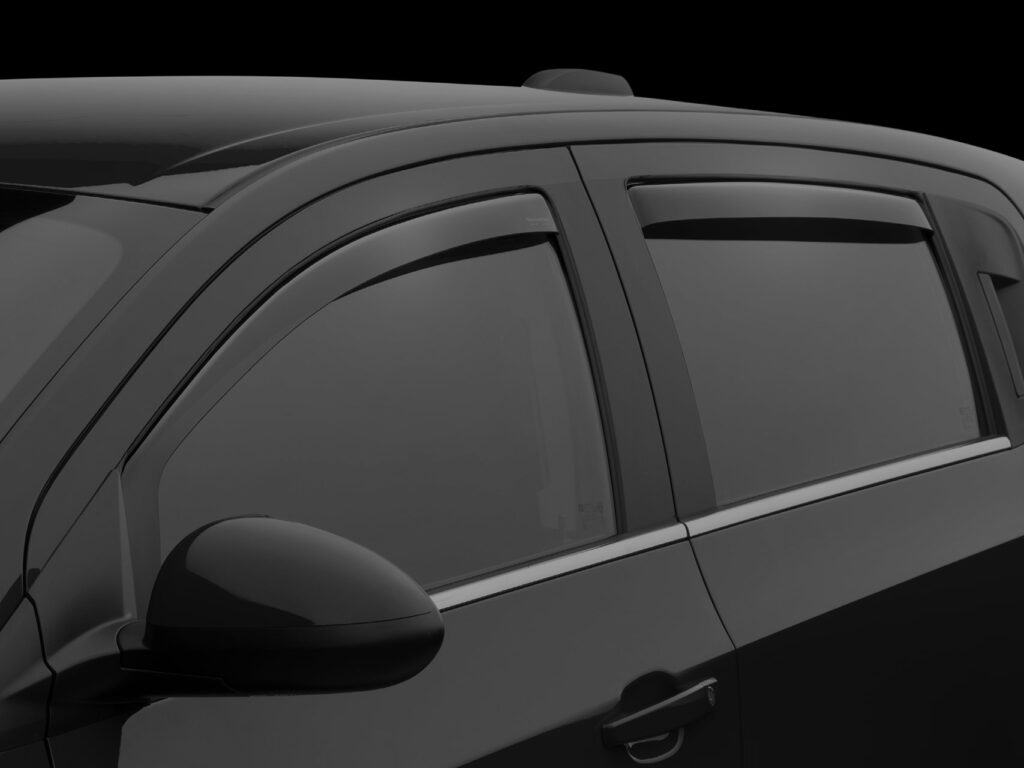Car window tinting is a great way to improve the looks of your car, but these tints have plenty of benefits for Boston drivers. We all know that spending too much time in the sun is not great for our skin. With so much of our lives spent driving around in cars, we’ve likely all wondered, do car windows block UV rays? These rays from the sun are responsible for damaging anything in their way. With so much sunlight entering our cars, it’s important to know if car windows block UV rays and if window tints provide the actual protection we need.
This article aims to shed light on the nature of UV rays, the distinct types of UVA and UVB rays, their potential damage to both car interiors and human skin and how high-quality window tints offer a comprehensive solution.
What Are Ultraviolet Rays?
Ultraviolet rays, part of the sun’s electromagnetic spectrum, are invisible but potent. Understanding their types is crucial:
- UVA Rays. Comprising about 95% of the UV radiation reaching the Earth’s surface, UVA rays are less intense but more prevalent. They penetrate deep into the skin, contributing to aging and long-term skin damage, and can easily pass through clouds and most types of glass.
- UVB Rays. These rays are the leading cause of sunburn and are stronger in intensity. Although they are partially blocked by clouds and glass, they play a significant role in skin cancer development.
Do Car Windows Block UV Rays?
The issue of UV exposure in cars often goes unnoticed. Windshields are made of thicker glass that typically includes a laminate center piece to stop it from shattering. This extra thickness and laminate piece allows it to stop UVA rays better as well. A study found that windshields, on average, block 96% of UVA radiation, with the range being 95-98%.
Side and rear windows typically have a thinner construction without the laminate piece. As such, they can perform much worse regarding ultraviolet rejection. The same study found that side windows stopped anywhere from 55% to 96% of rays, with only four of the 29 tested cars achieving over 90% protection. There was also no correlation with price, meaning it wasn’t necessarily the more expensive vehicles that gave better protection.
This inadequate protection is further seen in skin cancer prevalence, which is higher on the left side of the body in the United States. Since the driver’s side window allows light to constantly hit the left side of the driver’s body, there is a higher chance of developing skin cancer. Even without the threat of cancer, these UV rays accelerate aging, causing the skin to wrinkle and look older.
The Role of Automotive Window Tints in UV Protection
Thankfully, one of the main benefits of window tinting is the UV protection that the tints provide. Manufacturers tend to be very proud of how much UV light their tints can block out, so it’s very common to see car tints block out 98% of rays and beyond. The best part is that you don’t necessarily need dark tints to block out these damaging rays. For instance, advanced ceramic tints can be virtually clear and still block out over 99% of UV rays from entering your car. Window tinting laws prevent you from tinting the entirety of your windshield, but that won’t be too much of an issue given that the windshield has fairly robust protection against UV rays.
These tints provide essential protection:
- Preventing Interior Damage. Continuous exposure to UV rays can cause the car’s upholstery, dashboard, and other interior components to fade and crack. Quality window tints shield these surfaces, prolonging their life and appearance. This not only allows you to take more pride in your interior’s appearance, but it will also help boost your car’s resale value if your interior maintains its pristine condition.
- Shielding Occupants’ Skin. By blocking harmful UV rays, window tints act as a protective barrier for the skin, significantly reducing the risk of premature aging and skin cancer.
The Other Benefits of Window Tinting
While their UV protection is a wonderful benefit, car window tints provide a host of other benefits as well:
- Heat Rejection: Advanced tints can reject a substantial amount of solar heat, maintaining a cooler and more comfortable interior. This can be especially beneficial in hot climates, as it can help to reduce the need for air conditioning. Tints can also help to reduce fuel consumption by lessening the burden on air conditioning systems.
- Glare Reduction: Tinted windows effectively reduce the glare from direct sunlight and reflected light. This can minimize eye strain and enhance driving safety.
- Privacy and Security: Tints provide privacy for occupants and obscure the view into the vehicle. This can offer an added deterrent against potential break-ins.
- Style: Tints can also add a stylish touch to a vehicle. There are a variety of tint colors and shades available, so drivers can choose a tint that complements their vehicle’s appearance. A lot of the time, this will also increase the resale value of your car, as many people prefer the look of window tints and the accompanying benefits.
Your Local Window Tint Installer
When selecting window tints, it’s essential to consider the film’s quality and the installer’s expertise. High-quality tints with proven UV-blocking capabilities and professional installation ensure optimal performance and durability. While the previously stated benefits are generally found in all high-quality tints, some types will be better than others in certain aspects.
In summary, if you are wondering, do windows block UV rays, sort of. But they can do much better at blocking these harmful rays. As such, it’s greatly beneficial to install window tints that can stop these damaging rays. Not only do you receive protection from ultraviolet light, but you’ll also enjoy an interior that stays cooler and a car that looks nicer.
To best make use of these benefits, it’s essential that you choose an experienced window tint installer. For Boston drivers, ProCarSound&Security is the best place to go to get your tint installed. Our experienced technicians are highly proficient in tint installation, ensuring your tint is installed as perfectly as possible. If you have any questions about the best tints for you or would like to schedule an appointment, please don’t hesitate to contact our helpful team.








